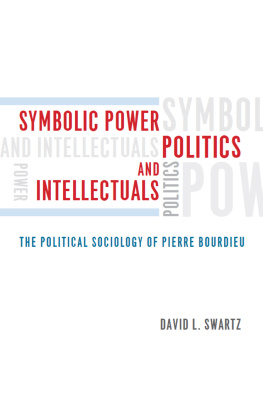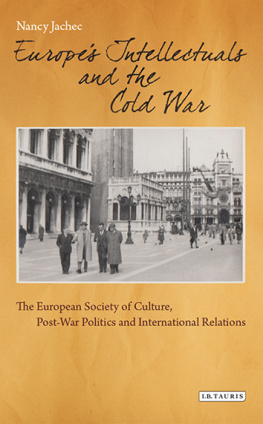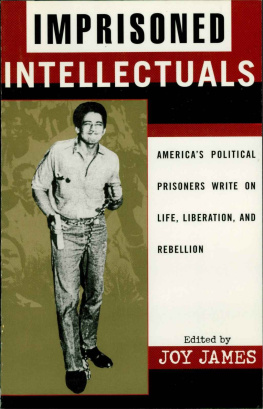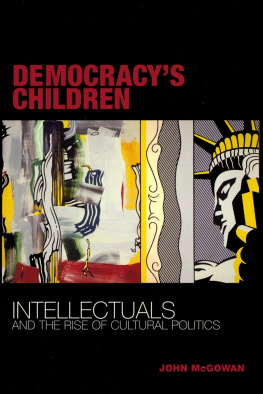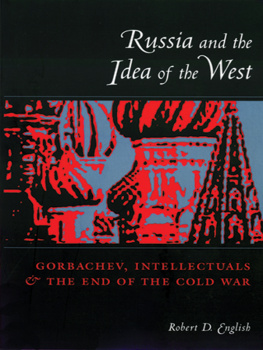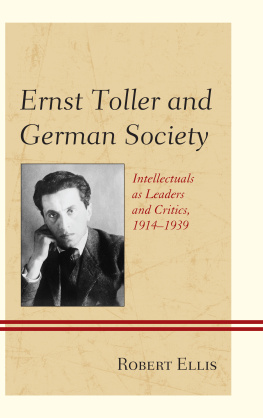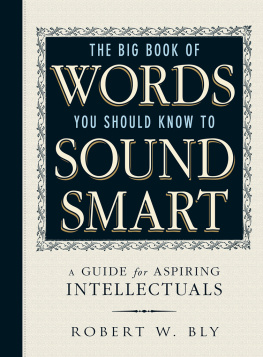Controversies in Sociology
edited by
Professor T.B.Bottomore and Dr M.J.Mulkay
Intellectuals and Politics
Controversies in Sociology
1 SOCIAL THEORY AND POLITICAL PRACTICE
by Brian Fay
2 UNDERSTANDING SOCIAL LIFE
by William Outhwaite
3 SOCIALISM: THE ACTIVE UTOPIA
by Zygmunt Bauman
4 DILEMMAS OF DISCOURSE
Controversies about the Sociological Interpretation of Language
by Anthony Wootton
5 SOCIAL EVOLUTION AND SOCIOLOGICAL CATEGORIES
by Paul Q.Hirst
6 THE LIBERATION OF WOMEN
A Study of Patriarchy and Capitalism
by Roberta Hamilton
7 MARX AND THE END OF ORIENTALISM
by Brian S.Turner
8 SCIENCE AND THE SOCIOLOGY OF KNOWLEDGE
by Michael Mulkay
Intellectuals and Politics
ROBERT J.BRYM
Assistant Professor of Sociology, University of Toronto

London
GEORGE ALLEN & UNWIN
Boston Sydney
First published in 1980
This edition published in the Taylor & Francis e-Library, 2010.
To purchase your own copy of this or any of Taylor & Francis or Routledges collection of thousands of eBooks please go to www.eBookstore.tandf.co.uk.
This book is copyright under the Berne Convention. All rights
are reserved. Apart from any fair dealing for the purpose of
private study, research, criticism or review as permitted under
the Copyright Act, 1956, no part of this publication may be
reproduced, stored in a retrieval system, or transmitted, in any
form or by any means, electronic, electrical, chemical,
mechanical, optical, photocopying, recording or otherwise,
without the prior permission of the copyright owner. Enquiries
should be sent to the publishers at the undermentioned address:
GEORGE ALLEN & UNWIN LTD
40 Museum Street, London WC1A 1LU
George Allen & Unwin (Publishers) Ltd, 1980
British Library Cataloguing in Publication Data
Brym, Robert J
Intellectuals and politics.(Controversies in
sociology; 9).
1. Intellectuals 2. Political sociology
I. Title II. Series
301.592 HM213 79-40984
ISBN 0-203-84462-9 Master e-book ISBN
ISBN 0-04-322005-3
Preface
This book analyses the relationship between intellectuals social locations and their political orientations. In the course of critically discussing several sociological viewpoints regarding this issue, I have sought to specify in a tentative but theoretically integrated manner the social conditions which encourage intellectuals to follow various directions on the political compass: moderation or radicalism, democratism or elitism, leftism or rightism.
Professor T.B.Bottomore first suggested that I contribute a book on the subject of intellectuals and politics to this series, and during the sixteen months it took to prepare he made a number of helpful suggestions for which I am very grateful indeed. Almost all of the writing was done during my tenure at the Memorial University of Newfoundland, and one of my colleagues at Memorial, Victor Zaslavsky, carefully read the entire manuscript and supplied me with many insightful comments which led to its improvement. But my debt does not stop here. In general, my colleagues and students provided me with an ideal environment within which to practise the sociological craft. It is therefore to the community of sociologists and anthropologists at Memorial that this work is dedicated.
I gratefully acknowledge that research for this book was funded in part by the Canada Council.
R.B.
Toronto
1
Introduction
Although some men specialised in the production of ideas even in the most primitive of societies, it is only during the last three or four hundred years that intellectuals have become a large, well-defined and self-conscious group. Several circumstances combined to separate them from non-intellectuals. Foremost among these was the growing division of labour which accompanied the rise of capitalism and which occasioned a rapid increase in the absolute and proportional number of highly educated persons in society. Trained specialists of various sorts were necessary in an industrialising world; so was a literate population which served as a market for the intellectuals cultural products. Along with this growth in the number and importance of accredited specialists and purveyors of culture, a second process which stimulated the intellectuals self-awareness was their changed position in society. The expanding market for intellectual skills freed men of ideas from the shackles of ecclesiastical and courtly patronage. Whereas in mediaeval times their political allegiances had been more or less rigidly constrained by the interests of their patrons, an element of indeterminacy entered their lives as they began to sell their skills on the open market. Intellectuals in the modern world had to come to grips with such questions as to which class (if any) they belonged and to which political current they adhered. What was formerly a given was now problematic. Answers to these questions were formulated and debated in a host of settings, among which political sects, parties and movements, schools and universities, newspapers, journals and reviews, salons and coffee houses, clubs, discussion circles and professional societies provided some of the most important. The evolution of these contexts for meeting and discussion represented a third social condition necessary for the crystallisation of an intellectual identity.
This book is concerned with some key aspects of the political theories and practices of intellectuals since (as Edward Shils nicely put it) their capacity for loyalty was liberated some three centuries ago. The topic might be of purely academic interest were it not for the fact that intellectuals have played an important and in some cases decisive role in the political life of the modern world. Indeed, the noun intellectual first came into widespread use in the midst of a controversy which shook the political foundations of late nineteenth-century France. It was employed, mainly by persons on the political right, to refer to those French men of letters who led the anti-clerical and anti-military camp in protest against the conduct of the Dreyfus trial in 1894. The kindred term intelligentsia entered the vocabulary of central and eastern Europeans less than half a century earlier and it, too, denoted thinkers who were critical of established authority and who later played a key role in the revolutionary movement.
This is not to suggest that intellectuals are necessarily radicals, let alone leftists. To be sure, for many writers the terms intellectual and intelligentsia still suggest critical and progressive thinkers who are alienated and detached from society. But if one holds that intellectuals are by definition detached from, and therefore critical of, society, then one is forced by conceptual fiat to dismiss the problem of how their political views may vary with the degree and direction of their social attachments,




